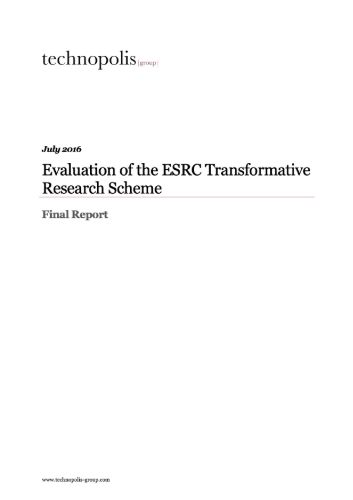Evaluation of the ESRC Transformative Research Scheme
Publiceringsdatum: 31 juli 2016 | Språk: EN
Technopolis was commissioned by the UK’s Economic and Social Research Council (ESRC) to evaluate its Transformative Research scheme: a scheme that uses novel assessment methods (anonymous two-page applications, followed by a presentation to reviewers and fellow applicants) to identify and fund research projects that present particularly innovative new methods, perspectives or interdisciplinary approaches. High-risk projects and those with promise to challenge established assumptions were explicitly welcomed. Alongside survey, observation and interview evidence, Technopolis conducted two rounds of comparative peer review experiments (first comparing successful with unsuccessful applications to the scheme, then outputs from the scheme with outputs from the ESRC’s Standard grants; in both cases, the review panel of senior academics was not informed which was which). The evaluation yielded impressive findings, attributed not least to a culture of self-reflection and innovation that has been allowed to take hold in and around the scheme. This study will be of interest to all who seek to fund more innovative, groundbreaking research in the social sciences and beyond, and overcome the often-noted conservative nature of peer-review.





